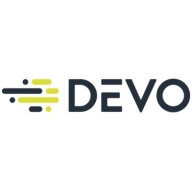

Zenoss Cloud and Devo are competitive products in the cloud monitoring and security analytics space. Users rate Zenoss Cloud higher in terms of ease of setup and support, while Devo stands out with its robust features, making it a superior choice for extensive functionality.
Features: Zenoss Cloud offers unified monitoring, real-time performance insights, and seamless integration. Devo provides powerful data ingestion, advanced analytical capabilities, and flexible data integration.
Room for Improvement: Zenoss Cloud could enhance its alerting mechanisms, refine reporting functionalities, and improve user interface customization. Devo users want more user-friendly dashboards, better real-time data processing, and simplified navigation.
Ease of Deployment and Customer Service: Zenoss Cloud has straightforward deployment and strong customer support, with a guided setup process. Devo offers efficient deployment and extensive customer training programs, providing comprehensive support and guidance.
Pricing and ROI: Zenoss Cloud is perceived as cost-effective with good ROI due to lower setup costs. Devo, while having higher initial costs, is considered worth the investment due to its advanced capabilities and long-term benefits.
| Product | Market Share (%) |
|---|---|
| Devo | 0.8% |
| Zenoss Cloud | 0.7% |
| Other | 98.5% |


| Company Size | Count |
|---|---|
| Small Business | 7 |
| Midsize Enterprise | 4 |
| Large Enterprise | 11 |
| Company Size | Count |
|---|---|
| Small Business | 4 |
| Large Enterprise | 5 |
Devo is the only cloud-native logging and security analytics platform that releases the full potential of all your data to empower bold, confident action when it matters most. Only the Devo platform delivers the powerful combination of real-time visibility, high-performance analytics, scalability, multitenancy, and low TCO crucial for monitoring and securing business operations as enterprises accelerate their shift to the cloud.
We monitor all AIOps reviews to prevent fraudulent reviews and keep review quality high. We do not post reviews by company employees or direct competitors. We validate each review for authenticity via cross-reference with LinkedIn, and personal follow-up with the reviewer when necessary.